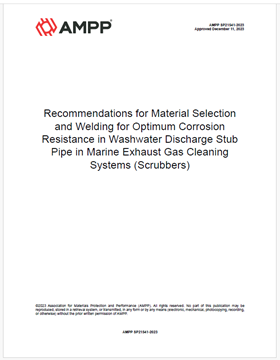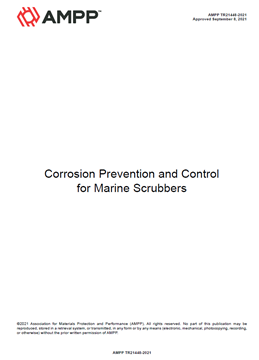Search
Products tagged with 'titanium alloys'
View as
Sort by
Display
per page
A Semi-Empirical Model for the Prediction of Localized Corrosion of Titanium Alloys in Geothermal Energy Systems
Product Number:
51323-19075-SG
Publication Date:
2023
$20.00
AMPP SP21541-2023, Recommendations for Material Selection and Welding for Optimum Corrosion Resistance in Washwater Discharge Stub Pipe in Marine Exhaust Gas Cleaning Systems (Scrubbers)
Product Number:
AMPP SP21541-2023
Publication Date:
2023
$109.00
AMPP TR21448-2021, Corrosion Prevention and Control for Marine Scrubbers
Product Number:
AMPP TR21448-2021
Publication Date:
2021
$109.00
Development Of New Grades Of Titanium-Based Metal Glasses For Dental Applications
Product Number:
51323-19522-SG
Publication Date:
2023
$20.00




